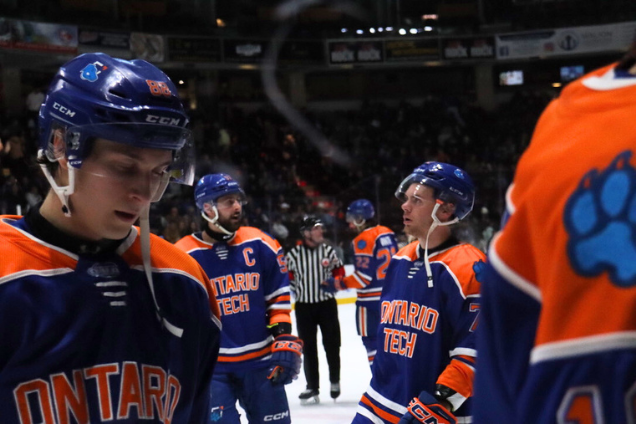Discipline, structure and a strong support system: this is what makes a successful career in sports.
Experience shows that being a college athlete is more than playing a sport; it’s the balancing act of academics, training, nourishment and mental focus.
Student-athletes devote their lives to their sports while pursuing education. They deal with coursework and have staggered practice schedules while still trying to make time for their individual well-being. This can be demanding and stress-inducing, especially for first-year athletes not used to the daily grind of college.
“It was definitely an adjustment at first — my first year in university,” said Beckett Langkow, a player for the Ontario Tech men’s hockey team. “Time management is key. If you let school take a back seat for too long, things get tough. Staying on top of it makes a big difference.”
A typical day can start early, hitting the books before hitting the gym, attending classes, then taking part in afternoon practices and, of course, team meetings.
“Our schedule does help — practice in the afternoon, so we can get most of our schoolwork done in the mornings,” Langkow said.
Following even a simple routine helps keep your mind clear during a game.
“I have a set routine I follow — not too strict,” Langkow said.
That mental preparation is just as important as physical training.
Tayem Gislason, also on Ontario Tech’s men’s hockey team, recognized early in his hockey career the value a clear mind holds: “I stretch right before a game, in a quiet area — just mentally prepare and meditate.”
“The focus part is pretty easy — get good sleep, take care of your body, eat right and get plenty of rest,” Gislason said
“Consistency is the biggest thing. Make sure you’re doing the right things, do them every day and take care of yourself. It’s everything you do, your habits.”
Even if being an athlete is what you want to do for the rest of your life, good grades are important. The majority of colleges and universities only allow athletes to continue with their team if they get above a certain GPA, and Gislason agrees academics should never “take a back seat.”
“If you don’t have the GPA you need and you’re not passing your classes, what do you do after hockey?” he asks. “I’m in business — taking economics, accounting, a writing course and an entrepreneurship course.”
Langkow and Gislason stress that habits, discipline and preparation help keep them going. Developing these skills is a challenge, but necessary to maintain their drive.
“It’s a privilege, not a right. You’re never given anything,” Gislason added. “You have to earn everything and you aren’t entitled to anything.”
It is important to remember it’s a marathon not a sprint. Behind every successful student-athlete, some struggles and hardships are endured and inevitably overcome. Take it day by day, focus on what makes you a better, healthier, smarter person and you’ll be a better athlete for it.




